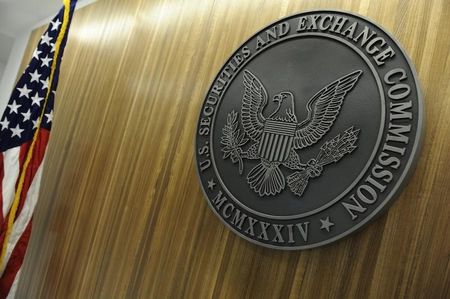U.S. Senate to overhaul crypto market structure? What’s coming up next
The post U.S. Senate to overhaul crypto market structure? What’s coming up next appeared on BitcoinEthereumNews.com. Key Takeaways The U.S. Senate Banking Committee has released a new draft aimed at overhauling the country’s digital asset market structure, placing regulatory clarity and investor protection at the forefront. The U.S. Senate Banking Committee published a discussion draft titled the “Responsible Financial Innovation Act,” with an aim to establish a clear framework for categorizing and regulating digital assets. The drafts, released on the 22nd of July, mark a follow-up to the CLARITY Act, introduced earlier this month. What impact will this have overall, and what should stakeholders expect? A step toward further clarity The new proposal builds on the momentum of CLARITY act by refining key terms and better defining the scope of authority for U.S. regulatory agencies. It also calls for public feedback from stakeholders across the crypto and financial sectors. Senator Tim Scott, who chairs the Banking Committee, emphasized the draft’s goal of modernizing outdated disclosure requirements under the Securities Act of 1933. According to him, the current framework falls short in addressing the unique characteristics of digital assets. Senator Scott stated, “My colleagues and I in the House and Senate share the same goal: to provide clear rules of the road for digital assets that protect investors, foster innovation, and keep the future of digital finance anchored in America.” One of the most significant updates in the draft is the redefinition of “ancillary assets” a category referring to digital assets tied to investment contracts but lacking features like equity rights, dividends, or debt claims. This classification helps determine whether a digital asset falls under SEC (Securities and Exchange Commission) oversight or should instead be regulated by the CFTC (Commodity Futures Trading Commission). Instead of using the House’s previously proposed “maturity” decentralization test, the Senate draft introduces a rights-based approach. Under this system, the CFTC regulates ancillary…

The post U.S. Senate to overhaul crypto market structure? What’s coming up next appeared on BitcoinEthereumNews.com.
Key Takeaways The U.S. Senate Banking Committee has released a new draft aimed at overhauling the country’s digital asset market structure, placing regulatory clarity and investor protection at the forefront. The U.S. Senate Banking Committee published a discussion draft titled the “Responsible Financial Innovation Act,” with an aim to establish a clear framework for categorizing and regulating digital assets. The drafts, released on the 22nd of July, mark a follow-up to the CLARITY Act, introduced earlier this month. What impact will this have overall, and what should stakeholders expect? A step toward further clarity The new proposal builds on the momentum of CLARITY act by refining key terms and better defining the scope of authority for U.S. regulatory agencies. It also calls for public feedback from stakeholders across the crypto and financial sectors. Senator Tim Scott, who chairs the Banking Committee, emphasized the draft’s goal of modernizing outdated disclosure requirements under the Securities Act of 1933. According to him, the current framework falls short in addressing the unique characteristics of digital assets. Senator Scott stated, “My colleagues and I in the House and Senate share the same goal: to provide clear rules of the road for digital assets that protect investors, foster innovation, and keep the future of digital finance anchored in America.” One of the most significant updates in the draft is the redefinition of “ancillary assets” a category referring to digital assets tied to investment contracts but lacking features like equity rights, dividends, or debt claims. This classification helps determine whether a digital asset falls under SEC (Securities and Exchange Commission) oversight or should instead be regulated by the CFTC (Commodity Futures Trading Commission). Instead of using the House’s previously proposed “maturity” decentralization test, the Senate draft introduces a rights-based approach. Under this system, the CFTC regulates ancillary…
What's Your Reaction?


































